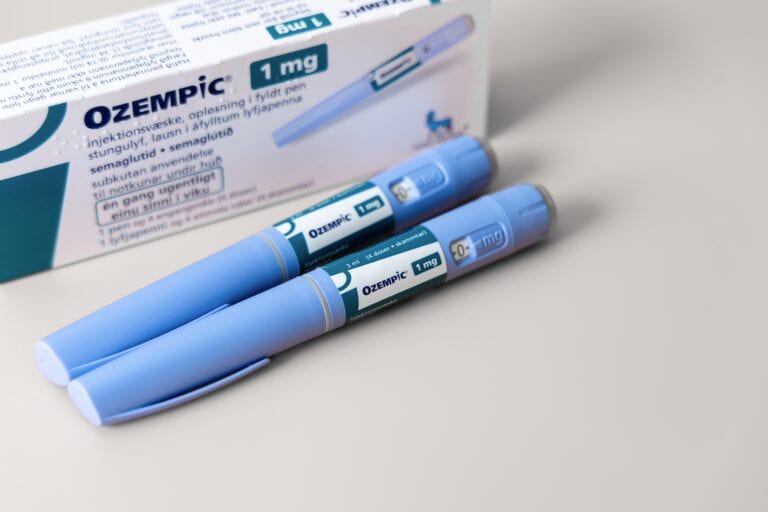As we grow older our bodies naturally undergo changes that might affect our sexuality. However it’s important to know that having fulfilling intimacy is still possible at any age. By communicating with our partners finding creative ways to adapt to these changes using protective measures to prevent infections and prioritizing overall wellbeing seniors can maintain satisfying sexual connections that align with their maturity level. This article explores solutions to address the natural decline in biology reduce discomfort enhance pleasure and prioritize mutual satisfaction as we age. With an effort, in understanding and meeting each other’s changing needs passion can continue to thrive thanks to the wisdom and responsiveness that comes with lasting bonds.
Table of Contents
ToggleHow does aging impact sexual function and desire in older adults?
Despite norms that discourage discussions about sexuality in older adults many individuals continue to experience intimate desires and express themselves sexually well into their later years.
Both men and women often maintain an interest in sexual activities valuing physical connection to establish deep bonds and enjoy pleasurable experiences throughout their lives.
However the aging process inevitably brings about changes that can influence sexual function requiring adjustments to ensure comfort and arousal.
Menopause and Andropause
Women experience the sudden transition of menopause while men undergo a gradual decline in testosterone levels known as andropause. These hormonal changes, including decreases in estrogen for women, and testosterone for men can impact aspects of sexual response.
Common experiences include:
– Decreased natural vaginal lubrication causing discomfort during sex
– Erectile reliability issues as arousal pathways waver
– Loss of flexibility creating strain with certain positions
– More time is needed to become fully aroused and reach orgasm
Solutions to Explore
The good news is that nowadays there are solutions available to supplement the natural decline in biology for couples. These solutions empower them to adapt their intimacy practices and maintain a sensual connection by being creative and responsive to their evolving needs.
Being open to using aids such as lubricants, toys, tension rings, erectile dysfunction medication and more, can ensure reliable satisfaction. By prioritizing fulfilment and mutual pleasure, over previous performance standards, partners can stay present and connected while proactively addressing any limitations together.
Having patience is key as it allows for arousal and reduced unease when incorporating new supplements or techniques into one’s sexual routine. Experimenting with positioning adjustments based on current flexibility, strength or stamina can help prevent strain and find the most comfortable approach.
What is the importance of safe sex practices?
In today’s world, where people are living longer and engaging in activity for a longer period of time it is important to practice safe habits to protect against the transmission of sexually transmitted infections (STIs), between partners.
Rising STI Rates in Older Adults
Unfortunately every year, the rates of infections such as chlamydia, gonorrhoea, syphilis and human papillomavirus (HPV) tend to increase among adults.
A recent federal report showed that cases of chlamydia, gonorrhea and syphilis increased 7 percent from 2017 to 2021, reaching 2.5 million cases. Syphilis infections surged a whopping 32 percent in just one year, from 2020 to 2021.The data reflect reported cases, but the number is likely even higher because many cases go undiagnosed.
https://www.uhhospitals.org
The following table offers a summary of the most prevalent sexually transmitted diseases (STDs) among older adults. Please remember to consult with a healthcare professional, for medical advice, diagnosis, or treatment.
| Chlamydia | Transmitted during vaginal, anal, or oral sex. Ejaculation is not required for transmission. | May not show symptoms, some experience burning, itching, swelling. | Curable with antibiotics. |
| Gonorrhoea | Transmitted during vaginal, anal or oral sex. | Rash on genitalia, burning while urinating, anal, vaginal, or rectal discharge. | Curable with antibiotics. |
| HPV (Human Papillomavirus) | Intimate skin to skin contact during vaginal, anal or oral sex. | Warts on genitals, mouth, or throat. | Vaccine available; medications can alleviate symptoms |
| Hepatitis B | Transmitted by blood, semen, vaginal secretions during vaginal, anal or oral sex. | Abdominal pain, dark urine, fever, joint pain, jaundice, loss of appetite, nausea, fatigue. | Vaccination: chronic cases may require antiviral medications. |
| Trichomoniasis | Vaginal, anal, or oral sex. Ejaculation is not required for transmission. | May not show symptoms, itching, burning redness of genitals, discomfort peeing or during ejaculation, discharge. | Curable with antibiotics. |
| Syphilis | Direct contact with a syphilis sore during vaginal, anal, or oral sex. | May not show symptoms, painless sore or ulcer on genitals, rectum or mouth, rash. | Curable with antibiotics. |
Studies indicate that this is due to a decrease in compliance with using barrier protection methods compared to age groups.
However it’s important to note that condoms offer an effective shield against these pathogens.
They significantly reduce the risk of transmitting transmitted infections (STIs) during vaginal oral and anal sex while still allowing for pleasurable experiences. Protecting the systems of aging individuals from additional harm is crucial and should be prioritized regardless of how long the relationship has lasted or any assumptions, about immunity.
Routine Testing
Combining screening and protection creates a defence. As people get older the vaginal wall tissues become thinner, changes in erectile tissue occur, making them more susceptible to infections. Regular testing is crucial for detection and treatment in case preventive measures are not effective. Testing should not be limited to individuals; being well informed helps protect people of all ages.
Essential safeguards for senior sex include:
– Correct condom use with all partner types
– Routine STI testing every 6-12 months
– HPV, hepatitis A/B vaccination as advised
– Avoiding exchange of bodily fluids with unknown partners
Taking precautions helps to protect both personal and public health. However it is important to go beyond focusing on the risk of infection.
Open and honest communication is crucial, for finding comfort and moving forward.
Navigating Intimacy Through Openness
In addition to ensuring wellbeing, direct communication provides valuable insights on how to address and overcome typical challenges that may arise in the realm of senior sexuality. This enables couples to strengthen their connection while finding solutions to any limitations that may arise.
Sharing Needs and Adjustments
It’s important to understand and be empathetic when someone experiences changes in their functioning that are beyond their control.
Before suggesting any adjustments it’s crucial to prioritize understanding and open communication. We can gently encourage our partner to explore options like lubricants, toys positioning aids, therapy or medication that can enhance pleasure and intimacy.
It’s essential not to let outward changes discourage attraction. Instead we should focus on reinforcing aspects of the connection between two people rather than solely relying on appearances.
By redirecting our attention towards the spiritual aspects that bring lovers together we can overcome physical limitations more easily. Therapy can be helpful in challenging assumptions that equate youth with beauty and realizing that abstinence is not the only option when facing difficulties with sexual function.
Prioritizing Pleasure
Patience forms the foundation on which intimacy is built – allowing for arousal and reducing any discomfort. Through experimentation discover the adaptations that best cater to your level of flexibility, strength, or stamina to avoid any strain.
Laughter naturally dissolves any lingering embarrassments when assistance is needed for reflexes.
Innovative supplements aim to enhance the experience rather than replace personal abilities for pleasure.
Creating channels that dispel shame surrounding the changes brought by aging can guide partners towards tapping into renewed erotic potential once functionality becomes conscious and cycles restart.
Embracing the use of lubricants, toys, tension rings or medication liberates couples from being at the mercy of physiological fluctuations and helps maintain satisfaction, in their relationship.
How can couples overcome physical intimacy barriers?
Even if couples face challenges with mobility, flexibility, or physical responsiveness they can still maintain intimate connections by finding ways to adapt that suit their changing abilities and preferences.
Equipment Enhancing Senior Sex
A range of equipment exists to assist older adults experiencing common changes like:
– Vaginal dryness and thinning
– Decreased penile sensation
– Erectile reliability issues
Bedroom aids enhancing comfort and function include:
– Water-based lubricants supplying hydration
– Silicone-based lubricants for sustained slickness
– Specialized atrophy reversing moisturizers
– Supportive pillows or furniture minimizing strain
– Vibrators providing assistance
– Erectile aids like pumps or medication
After menopause when the vagina becomes thinner, lubricants are used generously to ensure penetration. Silicone based formulas that longer reduce the need for frequent reapplication.
For individuals who may have difficulty maintaining an erection additional prescriptions or tension rings can help prolong their presence. Vibrations can restore sensation that may be dulled due to nerve damage or reduced blood flow.
Adjustable beds are helpful in finding positions for those with limited mobility.
Each of these items aims to enhance the experience rather than replace personal abilities.
While adapting to changes, patience and creativity play a crucial role in prioritizing sensory fulfilment over previous functions. For partners physical intimacy goes beyond mere actions when there is a deep connection, between spirits.
Maintaining Holistic Health
Taking care of your wellbeing, not just in the bedroom, can contribute to more passionate and satisfying experiences between the sheets while also reducing the chances of related health issues. Prioritizing nutrition, staying physically active and managing stress levels can enhance libido, sexual performance, and fertility even as we age.
Daily wellness habits benefiting sexuality include:
- Consuming diets rich in nutrients and antioxidant compounds that support the function of nerves and blood vessels.
- Engaging in cardio and strength training exercises to improve stamina and reduce inflammation.
- Managing stress to support the coordination of arousal pathways in the brain, which can be affected by distress.
- Getting sleep to regulate hormones associated with desire.
Undergoing annual check-ups to assess hormone levels, blood sugar regulation, cardiac risk factors and infection status. Early guidance can reinforce outcomes if any suboptimal scores are detected.
Detecting deficiencies promptly helps prevent decline before dysfunction occurs. If necessary, testosterone, estrogen or DHEA therapies can be considered alongside lifestyle adjustments for individuals who still wish to have children, in life.
Prioritizing everyday nurturing rituals contributes to wellness and sets the stage for satisfying experiences during nighttime by maintaining alertness and high energy levels. Strengthening the system supports long lasting passion even as years go by.
Protecting Oneself and Significant Others
As our bodies go through the process of maturing and getting older, we gain wisdom that helps us make better choices when it comes to relationships and sexual behaviour for our wellbeing.
Scientific evidence clearly shows that as we age our immune system and anatomy become more vulnerable. Therefore it’s important to avoid contact with fluids from unknown sources to prevent the transmission of blood borne diseases such as HIV, hepatitis B/C, syphilis, and human papillomavirus.
Like using sunscreen to protect ourselves from harmful rays consistently and correctly, using condoms can also protect us from contracting infectious microscopic agents during sexual activity with non-monogamous partners. For those, in relationships who still have hopes of reproduction it’s crucial to exercise caution.
While emotional and sexual connections can greatly enhance our lives it’s essential that these connections lead us towards growth rather than draining us through unwise entanglements. Practicing behaviours reinforces self-worth and authentic expression.
What are some strategies for promoting fulfilment for LGBTQ+ seniors?
Older members of the LGBTQ+ community face health concerns when it comes to navigating physical changes that can affect intimacy and sexual function. However they also must deal with challenges such as communication barriers, discrimination, stress, and feelings of isolation. This calls for a deliberate effort in building a supportive community and advocating for their specific needs.
Thankfully there has been progress in terms of visibility and social acceptance of diversity across age groups. This has resulted in non-heteronormative adults having better access to competent medical care platforms for sharing their wisdom and opportunities for integration that provide support. It is important for lesbian, gay, bisexual, transgender individuals, and others within the LGBTQ+ spectrum to seek health education that specifically addresses same sex relationship dynamics and physiology. This way they can receive guidance from professionals who’re culturally sensitive.
Psychotherapy can also play a role in helping individuals process internalized stigma and strengthen their sense of self-worth in the face of ongoing discrimination. Previous generations had to endure secrecy and shame due to a lack of protections and societal hostility. Although progress is still being made recent advancements towards equality have provided pathways for LGBTQ+ elders to seek acknowledgment and assistance. This ultimately leads to resilience and wellbeing when it comes to sexuality later in life.
Resources are available now that empower the community to thrive despite enduring both longstanding challenges as well, as emerging health needs.
Conclusion
Is it true that passions naturally fade as we age? Science suggests otherwise. Despite beliefs that interest wanes and intimacy becomes challenging in midlife and beyond many individuals continue to desire sensual connections throughout their lives finding new ways to engage in pleasure.
As our bodies go through hormonal changes with age we can still adapt and find ways to keep the flame of sensuality alive. Effective communication and a willingness to explore aids become essential in safely exploring our enduring erotic potential during the second half of life’s journey.
While physical intimacy may require conscious effort and assistance as reflexes diminish wisdom guides us through this transition. With devotion as our compass we can embark on a fulfilling exploration of love at every stage of life.
FAQ
What can seniors do to ensure a healthy sex life?
To ensure a healthy sex life, seniors should practice safe sex by using condoms and lubricants. Regular STD testing is also important, especially for sexually active older adults.
Does condom use necessary for seniors?
Yes, using a condom is a keyway to protect against STDs regardless of age. Many older adults may not consider it necessary, but it’s crucial for preventing sexually transmitted diseases.
Why is sexual health important for seniors?
Sexual health is important for better health among older adults. A healthy sex life can contribute to overall well-being and happiness. Regular check-ups, including testing for STDs, are crucial.
Do seniors need sex education?
Yes, it’s important for seniors to understand the risks of unprotected sex, including STDs. Sex education can help older people enjoy a safer sex life and make informed decisions about their sexual health.
Should seniors get tested for STDs?
Absolutely. Many older adults are sexually active, and STD testing should be a part of regular health check-ups. The Centres for Disease Control and Prevention recommend getting tested if they have new or multiple partners or if their partner’s sexual history is unknown.
Does Viagra play a role in senior sex life?
Viagra can play a role in many seniors’ sex lives, especially those 65 and older. It can help with sexual performance, but it’s also important to practice safe sex and get tested regularly.
How can older women maintain their sexual health?
Older women can maintain their sexual health by practicing safe sex, using condoms and lubricants, and getting regular check-ups for STDs. It’s also important to have open conversations about sexual health with partners.
Can seniors enjoy a healthy and safe sex life?
Absolutely. Many older adults are enjoying safe sex within a sexual relationship. It’s crucial to use protection, get regular STD tests, and have open conversations with partners about sexual health.













